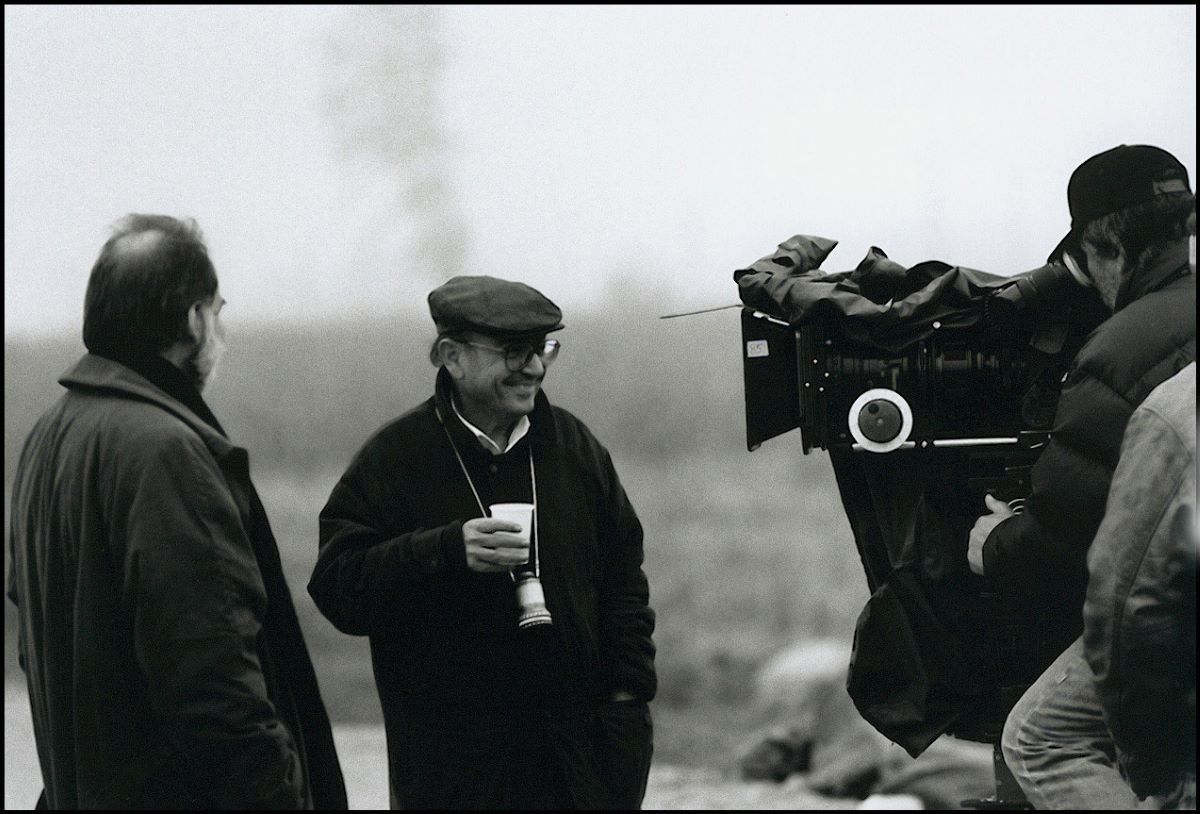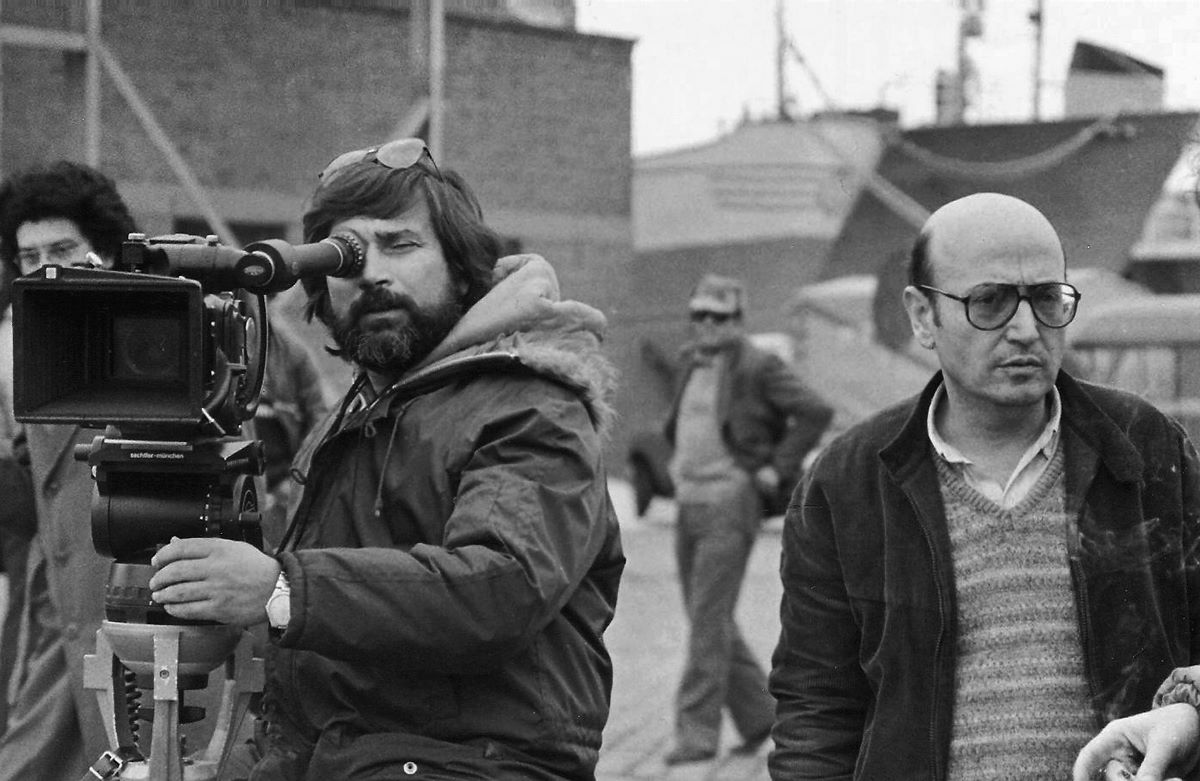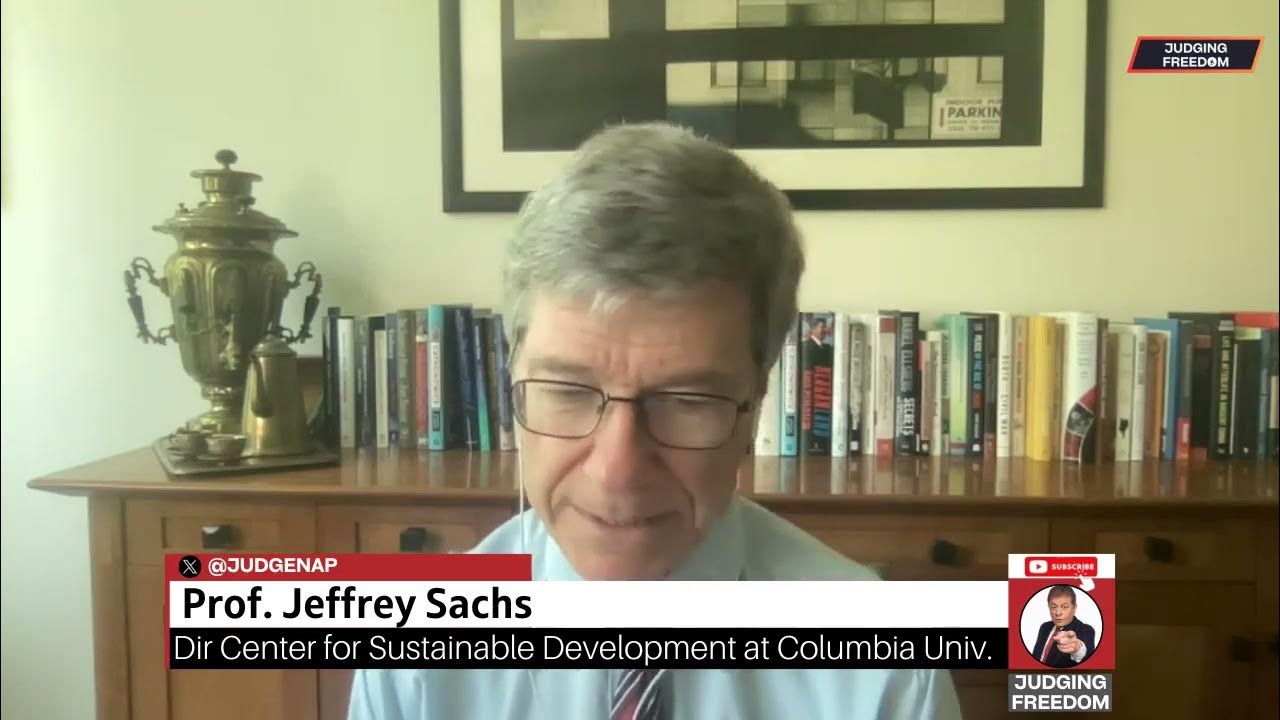Jordan Peterson, professor, author, influential thought leader, and philosophical phenomenon, explores the true meaning of life.
Lack of Meaning
What does it mean to find purpose in your life, and how might that be different from what you expect it to be?
Dr. Oz: Happiness you talk a lot about it should it be our life goal and if not what should we be seeking.
Peterson: Well, it shouldn’t be our life goal because there are times in your life when you’re not going to be happy and then what are you going to do? Your goal is demolished. And there are going to be plenty of times in your life when you’re not happy, there might be years. And so it’s a shallow boat in a very rough ocean. And it’s based upon a misconceptualization. Happiness is something that descends upon you, everyone knows that. You know, it comes upon you suddenly and then you should be grateful for it because there’s plenty of suffering and if you happen to be happy, well… wonderful, enjoy it, be grateful for it, and maybe try to meditate on the reasons that it manifested itself, right? Because it can come as a mystery, you know, you don’t necessarily know when you’re gonna be happy. Something surprising happens and delights you. And you can analyze that, you can think well I’m doing something right, I’m in the right place right now, I’ve done something right, maybe I can hang on to that, maybe I can learn from that.
What you should be pursuing instead is– well there’s two things. You should be pursuing who you could be. That’d be the first thing. Because you’re not who you could be and you know it. You have guilt, and shame, and and regret and you berate yourself for your lack of discipline and your procrastination and all your bad habits. You know perfectly well that you’re not who you could be, and god only knows who you could be. And that’s what you should be striving for.
And associated with that you should be attempting to formulate some conception of the highest good that you can conceive of, you can articulate. Because why not aim for that? It’s like your life is short and it’s troublesome and perhaps you need to do something worthwhile with it. And if so, then you should do the most worthwhile thing and you should figure out what that is for you. And part of that’s definitely going to be to develop your character as much as possible to dispense with those parts of you that are unworthy. And then maybe, if you’re fortunate and you do that carefully, then happiness will descend upon you, from time to time. And that’s the best you’ve got. And then also, perhaps, during sorrowful times, or worse, evil times, the fact that you’ve strengthened your character and that you’re aiming at the highest that you can conceptualize, that’ll give you the moral fortitude to endure without becoming corrupted during those times and to be someone who can be relied upon in a crisis.
There’s a name you know– one of the things I’ve told my audiences is– the young guys take to this a lot—I said “you should be the strongest person at your father’s funeral”, right. Well, that’s something to aim for. It’s a transition, the generational transition, and it means that– well, all the people around you are suffering because of their loss. They have someone to turn to, who can illustrate, by their behavior, that the force of character is sufficient to move you beyond the catastrophe, and you need that. And that’s a great thing to hypothesize as your aim. And happiness just evaporates as irrelevant in light of that sort of conceptualization.
Dr. Oz: So when you are the strongest person at your father’s funeral– I just buried my father–
Peterson: Yes yeah–
Dr. Oz: –so it strikes home too when you say that. Should there be joy around that realization, not happiness. Happiness like the fizzy bubbles and you know carbonated beverage, they tickle your tongue but they go away. Is there a deeper joy? Because so many–
Peterson: Well, there’s at least the sense that you’ve taken something that could be very much like hell and made it far better than it could have been. And there’s also the fact that you know if you deal with– if you’re if you’ve matured enough let’s say to deal with the catastrophe of loss and death and you can also be the rallying point for the remnants of your family and pull them together at a moment of crisis. And that’s a payoff, to some degree, for the loss. So– I mean, I’ve seen this in families who’ve dealt with death properly the remainder of the family pulls together you know they become they become more integrated and it’s not complete compensation for their loss but it’s not nothing and it certainly beats the alternative where everyone’s fraction eights because everyone’s too weak to cope with the catastrophe and and everything dissolves.
Dr. Oz: So how do you actually become the strongest person as your father’s funeral? What are the steps and does it– is it always about being mission driven?
Peterson: Well, the mission is the improvement of your character the constant improvement of your character and I think a lot of that’s done in dialogue with your conscience it’s like your conscience is always telling you. Socrates said this thousands of years ago your conscience is always telling you what you shouldn’t be doing. And one of the things Socrates said was what discriminated him from the run-of-the-mill person and why perhaps we still know of him so many thousands of years later was that when his conscience told him not to do something he didn’t do it he stopped saying the things that he shouldn’t have been saying and he stopped doing the things he shouldn’t have been doing. And that’s a start, that’s a discipline. I would say that’s the ability to follow a certain kind of intrinsic discipline. And maybe that’s merely the cessation of evil and that’s not exactly the same as the pursuit of positive good let’s say you haven’t go out there yet but that’s a start you you clear away the obstacles from your vision by ceasing to engage in those activities you know to be wrong. And then the world starts to lay itself out in more pristine form.And then maybe you can start to apprehend what would be positively good instead of merely not wrong.
I mean, not wrong is a good start. The biblical corpus is structured in that way to some degree—at least from a Christian reading. The first rule is follow the damn rules right get yourself together. Here’s some rules, ten of them, 100 of them, follow them you discipline yourself, you make yourself a reasonably morally respectable individual and so now you’re not blinded as much by your own proclivity for uselessness and malevolence and then you can integrate all that, you can integrate all those rules. That’s the beginning of the development of character and then you can– then you can embody you can embody the union of the rules. It’s something like that. That’s that ultimate nobility and character. Like in the Christian corpus Christ is represented. Let’s think about this psychologically as the perfect individual right well just think about that as the psychological representation and that’s the person who’s taken a disciplinary structure in and integrated it into a personality that acts that out properly in the world. And it’s not merely rule-bound either, because you have to follow the rules but you also have to be part of the process that generates new rules when it’s necessary so you take that onto yourself to as an additional responsibility. Now, that makes you more than a blind avatar of authority and stops you from being rigid.
You know if you look at a medieval cathedral one of the things you’ll see for example is a representation of the sky, the Dome of the sky, and maybe you’ll see an imitation of Christ on them on them on the peak of the dome. And think about that as a representation of the ideal individual, speaking only psychologically. It’s like there’s something I’ve caused make importance about that. That’s what you’re aiming at, is that perfection of yourself and that’ll keep you busy for your entire life and it’ll do no harm right, it’ll make you better it’ll make your family better it’ll make your community better and it’ll give you– and it’s it’s psychologically meaningful so there’s all that, it helps you withstand suffering and disperse malevolence. But it’s also extraordinarily practical, because if you become a better person then you start to be good for things, you know, you can fix problems, you can handle a funeral, you can handle a difficult situation, you know. And so it’s not only that it’s psychologically meaningful to pursue the highest of goals and the development of your character, but it’s also the best possible thing that you can do practically here and now in the material world, to make it less terrible than it might otherwise be.
Dr. Oz: Are your personal goals always going to be aligned with the needs of society, the needs of humanity?
Peterson: Well, that’s that’s a trick. You know, it’s optimally the answer is yes and you can think about it like a musical score. You know, how there’s levels in a musical score each instrument is doing its own thing, each section is doing its own thing but it’s all united into a single vision. And that’s another reason why critics of the hierarchical structure are wrong because the proper way to set up a hierarchy is so that your interests are aligned with those of your family that’s hard that requires a lot of negotiation and then you and your family have your interests aligned with those of your local community right so that all of those levels are reinforcing each other and then those are United at a higher level at a higher political structure and that that’s an equilibrium state to use a phrase from the developmental psychologist Jean Piaget it’s a game that everyone wants to play and it’s working for everyone at the same time and so it isn’t based on oppression or dominance from the top down and so I think that if if you formulate your character properly and you put yourself together you start also to realize that you’re not– Look, if you get married to someone the ideas that you become one right and so it isn’t just your interest anymore or maybe it’s that your interest isn’t your interest without it also being someone else’s interest right it’s insufficiently formulated and you need that conflict with another person to tap you into proper shape so what you’re aiming at is you and the development of your character but more than that. And then you do the same when you introduce children into that you expand out that that that characterological capacity and then you can continue to expand that. And so optimally yes the what serves you should be serving at every level.
And I believe that part of the reason that music has such an overwhelming effect on people is because that’s what it says it says look everything can work in a multi-level harmony and then people listen to music and like it produces music produces a religious like experience in everyone right it transfixes them with the sense of intrinsic meaning it’s really miraculous that it does that and the question is why and I’ve puzzled over this for years and it seems to me that the reason is is that in the musical piece everything has its proper place at every level and so that speaks of well it speaks of heaven nuts that’s the right way to put it which is why music is so often used in churches but it means that everyone’s interests interests are being taken into account you know and it’s obviously it’s a utopian ideal but and it’s something that has to be constantly worked on but– See, people often have accused me of an individualistic bias in my moral reasoning you know that well you should get yourself together it’s like an r and it’s like no it’s not it you get yourself together so that you can get your family together so you can get your community together so that you can get the world together, all of that at the same time. There’s nothing selfish about that except the responsibility which is on you to start that and to bear that and to lift that and to act it out. So it has nothing to do with chasing your short-term impulsive pleasure seeking goals.
Dr. Oz: Which is the real epiphany for me because you know that you’re doing the right thing for you personal growth when it’s the same thing the society needs from you when your needs alignment what society needs you to do for it then you’re doing the right thing probably for yourself.
Peterson: Well that’s that’s how it seems I mean it seems then let you found your niche right it’s where you and what you have to offer fit and you know I think of people as beasts of burden in some sense like we’re built for a burden and we’re not happy without that burden and we want to find the one that suits us and that’s difficult it’s it’s part of the adventure of life to seek out the burden that suits you but when you have that then yes then hopefully you’re operating in harmony with with the requirements of those around you and what the thing to me is that everything else pales in comparison to that that’s why it says in the New Testament that you should stack up riches in heaven it’s like there isn’t anything better than that you know you’re functioning well your family’s functioning well you’re contributing to your community what you’re doing is worthwhile you know you’re not tormented by your conscience you’re aiming at something that the sacrifices that you have to make are that clearly justified the sacrifices you have to make maybe even the sacrifice of your life because you’re in this like this is a mortal game you’re in this with your whole life and you’d think that what that would mean at least in part is that you need to find a game to play that’s of sufficient grandeur and nobility so that perhaps even the fact that mortality is built into the structure now becomes justifiable I mean it’s a hell of an ambition but I don’t– it doesn’t seem to me to be something that’s impossible. I think you can live your life enough so that it justifies itself despite its limitation. That’s the real question can you do that and and I believe that you can and I believe that what that means is that the human spirit fundamentally triumphs over death and so that’s that’s optimism you know in the midst of the the sorrow and the malevolence we have the capacity we have the capacity sorry I’ll be sorry we have the capacity to transcend that then there isn’t anything more optimistic than that and and there’s nothing there’s nothing in it that isn’t good right it’s good for you it’s good for the people you love it’s good for the broader society. It’s like it’s good and that’ll take you through your times of travail there isn’t anything else that will and then maybe on your deathbed you can think I justified my privilege the terrible privilege of my existence and maybe that’s good enough it’s possible that that’s good enough. If you certainly don’t have you certainly don’t have anything better to do than that as far as I can tell
Dr. Oz: Y’all gotta find our burden doc Pearson I appreciate your passion for this it sinks through and it’s music as you point out they describe the things we all struggle with day in and day out but words to emotion as most of us can’t even touch. thank you being with us.
Source: DoctorOz, Published on Jul 3, 2019





1 thought on “Jordan Peterson on the True Meaning of Life”
Wow, just wow. Please stay alive as long as you can Dr. Peterson, you’re one of a kind. Thank you for everything you’ve put out in the world so far.